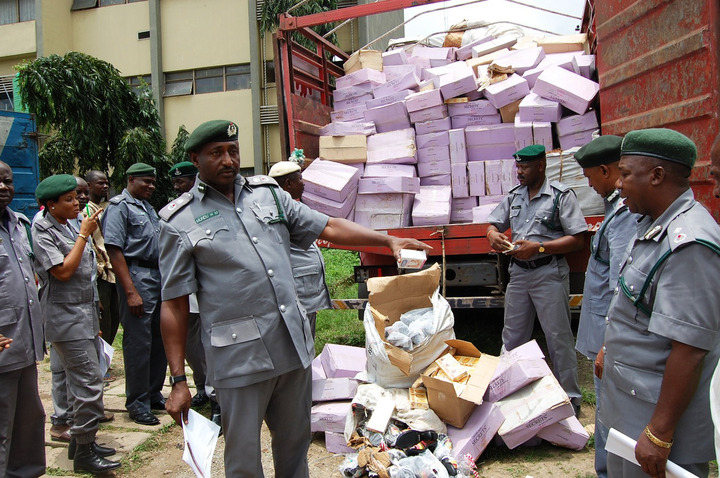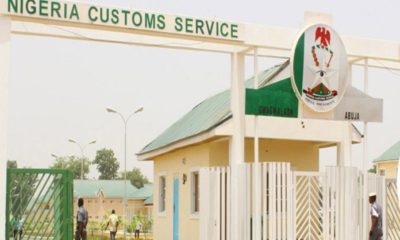- Customs Seize 21 Vehicles, Others Worth N2.8bn at Seme Border
The Nigeria Customs Service, Seme Command, has announced that between September and November, 2018, it intercepted goods worth N2,839,507,352.66.
It said within that period, it generated revenue of N1,948,408,519.66.
While disclosing this to journalists at the ECOWAS Joint Border Post in Seme on Wednesday, the Customs Area Controller, Seme Command, Mohammed Garuba, said among the items seized were; 21 vehicles, worth N134,410,536; 16,729 bags (27 trailers) of foreign rice worth N302,477,049, frozen poultry products worth N728,654,and vegetable oil worth N400,440.
Others were; used tyres worth N859,345, petroleum products worth 134,410,536, Tramadol worth N11,090,832, sugar worth N7,394,52140, used textiles worth N774,270,57, coconut worth N2,313,360 among others.
The Federal Government had in January 2017 banned importation of vehicles through the land border. The ban followed an earlier order in March 2016 banning importation of rice through the same route with a view to encouraging local production.
Garuba said as a consequent, any of the banned items intercepted along the border would be seized.
According to him, seven suspects were arrested in connection with the recent seizures, adding, “Some were convicted, bailed and others are currently being detained in connection with the seizures and are undergoing interrogation for possible prosecution.”
He added, “Beyond the above statistics, it is obvious that the seizures represent protection of the economy and security of our people. Let me state clearly that it is simply not enough to inform you about the revenue and seizures with the Duty Payable Value; what is of paramount importance is to boost our economic growth and provide employment for our teeming youths.
“Take for instance, the government policy on rice; the rationale behind the policy is geared towards self-sufficiency in terms of food production that would meet the demand of the citizenry. Incentives have been created for rice farmers, individuals and state governments have committed so much in terms of finance in order for this goal of self-sufficiency to be actualised.
“We as a Command cannot afford to be complacent. The dangers inherent in this illegality are too numerous to mention, hence our resolve to fight them relentlessly.”

 Forex3 weeks ago
Forex3 weeks ago


 Naira2 weeks ago
Naira2 weeks ago
 Billionaire Watch2 weeks ago
Billionaire Watch2 weeks ago




 Naira3 weeks ago
Naira3 weeks ago




 Naira2 weeks ago
Naira2 weeks ago




 Naira1 week ago
Naira1 week ago




 Naira4 weeks ago
Naira4 weeks ago




 Naira4 weeks ago
Naira4 weeks ago














